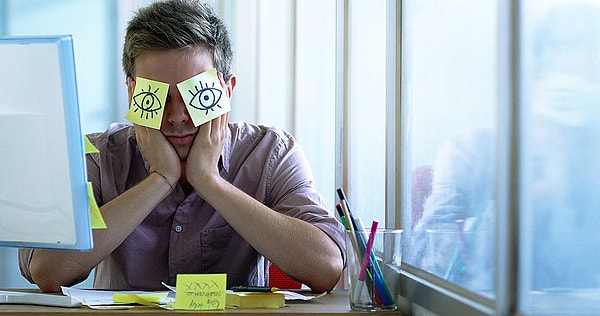The Science Behind Procrastination: Why Do We Put Things Off?
Procrastination isn’t just about laziness—it’s rooted in complex psychological and neurobiological factors. In this article, we dive into the surprising science behind why we procrastinate and why responsibilities can feel like such a heavy burden. Discover the real reasons you keep putting things off and how understanding these insights might help you overcome it!
The start of a new year is a source of motivation for many people to turn over a new leaf and break bad habits.

However, some habits are harder to kick than others—especially procrastination.
Tasks like completing a project, sending an email, or going for a run can feel like enormous burdens.

The easiest way to avoid these kinds of tasks is to delay them to a later date or simply never complete them. But why do people procrastinate? Is there a way to reduce this habit?
According to Fuschia Sirois, a psychology professor at Durham University, procrastination is fundamentally rooted in 'avoidance.'

But it’s important to note that it’s often the emotions that trigger avoidance. For instance, starting the first lines of a university assignment can be filled with self-doubt. When faced with an uncertain topic or question, the fear of not doing it correctly kicks in, leading to procrastination.
Sirois explains that procrastination is a form of unnecessary and voluntary delay.

This means that it’s not due to prioritizing other tasks or an unexpected emergency; rather, the person is aware that the task is important or valuable but still chooses to delay it.
Everyday tasks, like washing the dishes, can sometimes feel overwhelming.

People with chronic procrastination issues often struggle with managing and regulating their emotions. In a 2021 brain imaging study by Sirois, university students with more gray matter in their left dorsolateral prefrontal cortex were found to be less prone to procrastination. This brain region is associated with self-discipline; students with more neural connections were better at regulating negative emotions, focusing on long-term benefits, and completing tasks.
One reason individuals with attention deficit hyperactivity disorder (ADHD) are more likely to procrastinate is their challenges with emotional regulation.

A 2018 study observed that the amygdala, the brain’s threat detection center, was larger and thus more sensitive in individuals who procrastinate. This means that even a small task, like finding the right words to write an email, can be perceived as a significant threat.
Reducing procrastination involves learning to manage negative emotions.

When faced with a challenging task, taking a step back to understand your emotions is essential. Breaking the task into smaller parts or clarifying uncertainties can help. Additionally, finding meaning in the task and rewarding yourself upon completion can also be motivating strategies.
Keşfet ile ziyaret ettiğin tüm kategorileri tek akışta gör!


Send Comment